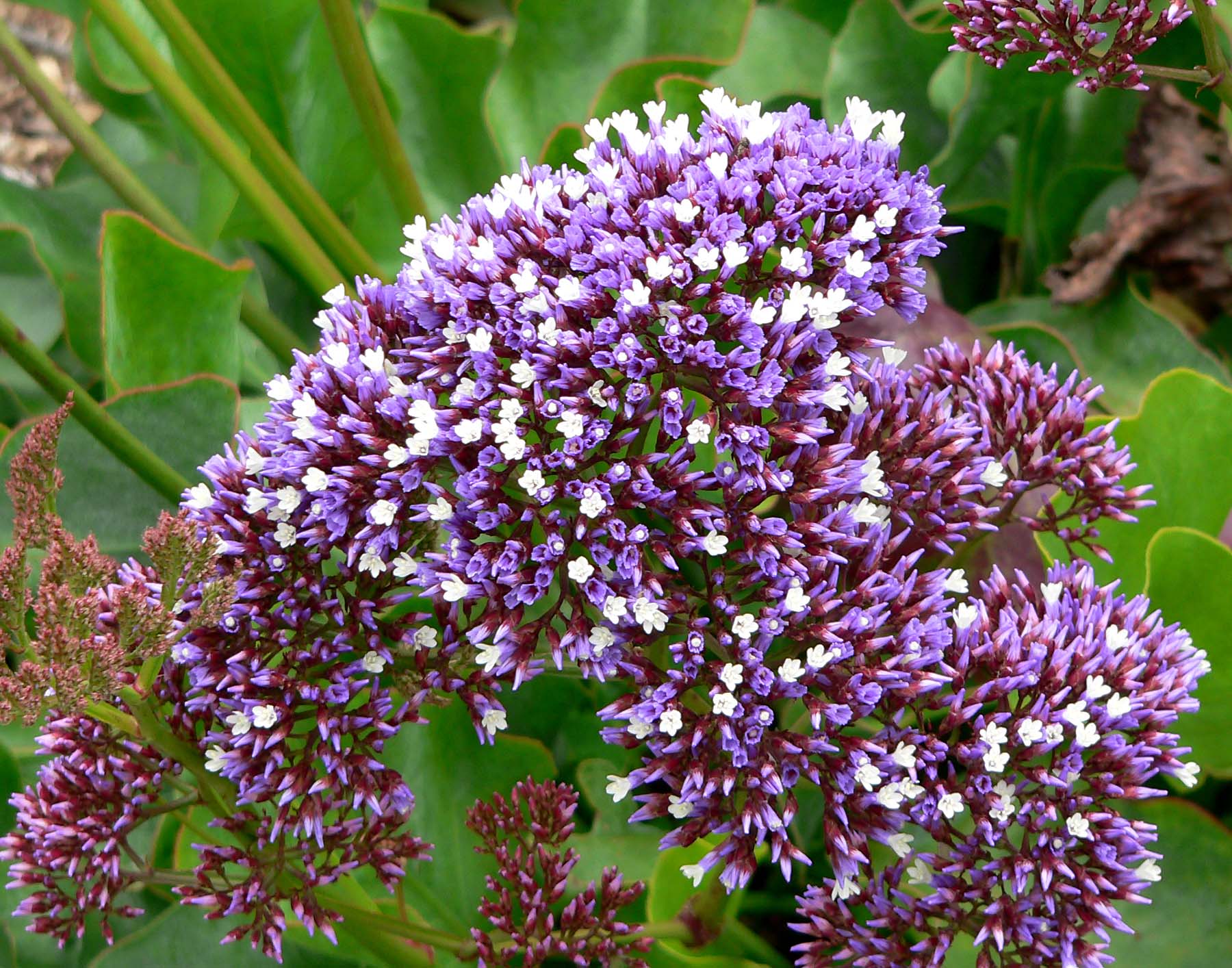Limonium perezii are the species of Limonium that is a perennial herb growing from a rhizome. Additionally, the leaves of this flower are thick and oval. Moreover, these have white petals and lavender sepals.
Suitable place for Limonium Perezii:
For the healthy growth of these flowers it is important to place this plant in full sun, and well-drained soil is also fundamental.
Origin of Flower: This flower is native to the coasts of the Island.
Genus: Its genus is Limonium.
Family: These flowers belongs to the family of Plumbaginaceae.
Species: It is a species of L. perezii.
Height: The height of this flowering plant is about 60cm_90cm.
Water: Medium watering is needed.
Maintenance: Low maintenance is enough.
Characteristics: These are showy and evergreen flowers.
Tolerance: It can tolerate salt, drought, deer and dry soil.
Attracts: Hummingbirds and butterflies are easily attracted to it.
Garden Uses: It is useful for Borders and Beds.
Exposure: The sunny area is best.
Seasonal interest: They are best to grow in winter, summer and spring.
Soil Type: Sand and loam are best.
Tips to better grow this plant:
Following are some important tips are given that you should follow to get better growth of this plant:
- Provide bright or full sun area.
- Watering on daily basis is necessary.
- Pruning is important to regenerate the bloom of these flowers.
- Fertilization is also required.
Most Frequent Asked Questions:
1. What are the common names of this plant?
The common name of this plant is sea foam statice, Perez’s sea and lavender.
2. What are the uses of Limonium Perezii?
The few uses of Limonium perezii are given below:
- Use a herbal tonic to cure respiratory ailments.
- Attracts birds and butterflies.
- Useful in decorating garden and events.
3. Are these flowers are poisonous?
No, these are non-toxic flowers and you can use this as houseplant without any fear.
4. What is the scientific name of Limonium perezii?
The scientific name of this plant is Marsh Limonium.

